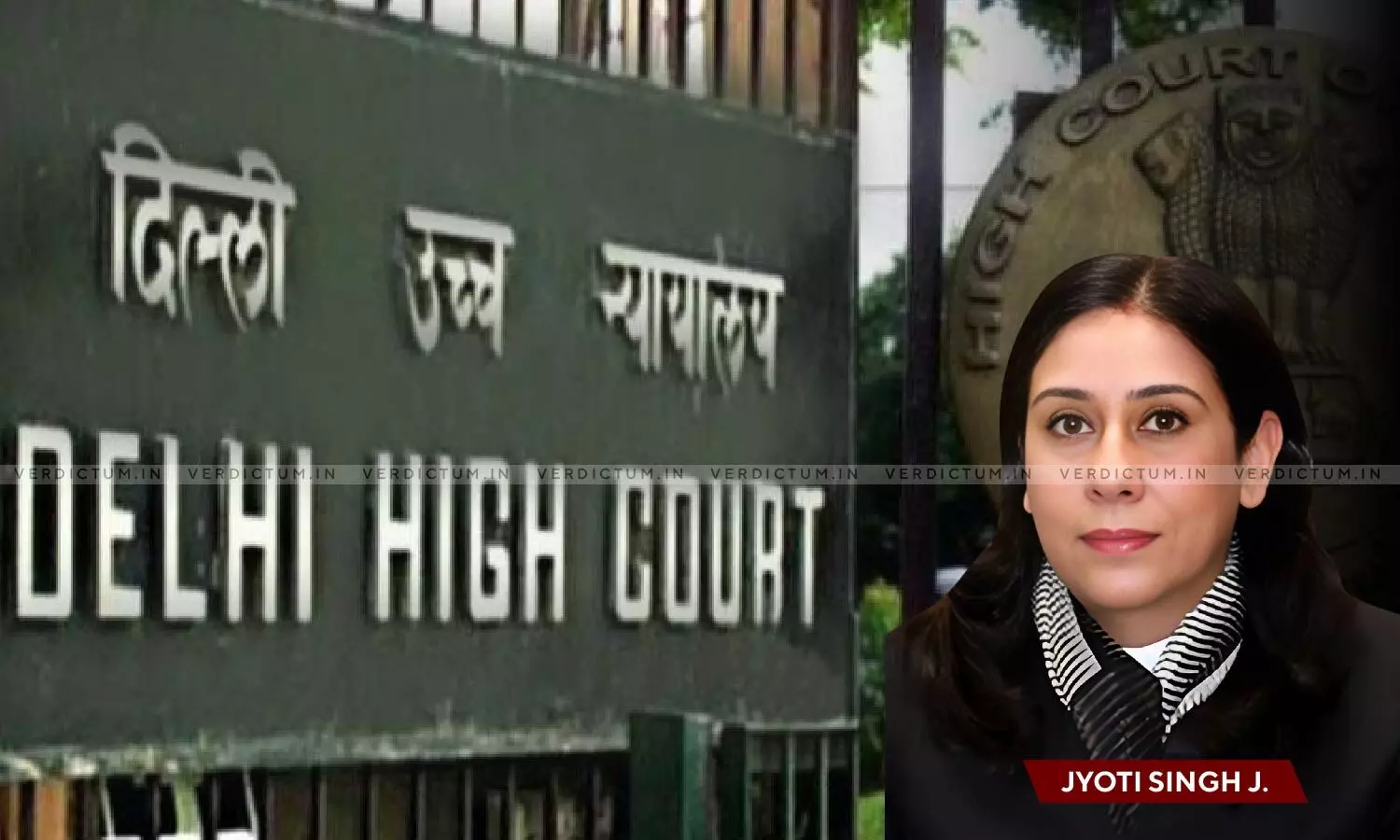
Use of Registered Trade Mark By Way Of Transliteration Even When Goods Are Dissimilar Amounts To Infringement: Delhi HC
 |
|While invoking Section 29(4) of the Trade Marks Act 1999 and relying on a plethora of judgments, the Delhi High Court held that if the plaintiff is prima facie able to establish the threshold of ‘reputation’ as required by Section, at the stage of interim injunction, then use of such registered trade mark by way of transliteration even when the goods are dissimilar, amounts to an infringement and the defendant is bound to injunct.
While affirming the Injunction Order passed in favor of the Plaintiff and dismissing the vacation application by the Defendant, a Single Judge Bench of Justice Jyoti Singh observed the case through principles set forth under Section 29(4) of the 1999 Act and held that “plaintiff’s registered trademark and mark used by the Defendant are phonetically identical and conceptually similar and the Defendants deceptively took advantage of Plaintiff’s goodwill and reputation. Hence, the plaintiff is entitled to protection of S.29(4)”.
Advocate Dayan Krishnan appeared for the Plaintiff and Advocate Kiran Suri appeared for the Defendant.
In a brief background of the case, the Plaintiffs (Pepsi Co Inc. and its subsidiary) possess a trademark in the name of ‘MIRINDA’ which is registered in India since 1996. Plaintiff sought a permanent injunction against the Defendant, who was using transliteration of the same name since 2015. It was in 2021 only that Plaintiff found that the defendants were selling liquor with the name ‘CONTINENTAL MIRINDA BEER’ in Class 32, which is the same Class under which Plaintiff’s goods are categorized under the Act.
After considering the submissions, the High Court observed that once the threshold of ‘reputation’ as required by Section 29(4) is established by Plaintiff, proving that customers do not get confused between the goods owned by Defendant and Plaintiff, is not required.
While referring to M/s. Hindustan Pencils Private Limited v. M/s. India Stationary Products Co. & Another [(1989 SCC OnLine Del 34)], the High Court observed that the onus of proof on the Defendant is not only to establish that there was a delay, rather he also must prove that there was some positive act on part of the Plaintiff which showed his acquiescence.
The Bench noted that Plaintiff had taken immediate steps by seeking an injunction as soon as the infringement came to their knowledge, whereas Defendant failed to discharge his onus.
On the contention of the Defendants that the goods are different and do not create confusion, the Bench took support from the decision in the case of ITC Limited v. Philip Morris Products SA and Ors. [2010 SCC OnLine Del 27], wherein it was observed that Section 29(4) provides wider trademark protection, and applies even where there are dissimilar goods.
While relying on Ashok Leyland Limited v. Blue Hill Logistics Pvt. Ltd. & Another [2010 SCC OnLine Mad 6126], the Bench reiterated that protection of Section 29(4) even to dissimilar goods is based on the doctrine of dilution and even if a violation of trademark’s use by Defendant may not cause confusion it may blur distinctiveness and tarnish the image of Plaintiff’s mark.
On the pleading of the Defendant that they were an honest and concurrent user of the same name, the High Court observed that the Defendants’ use of a mark which is a transliteration with phonetic identity, cannot be counterbalanced by the defence of honest and concurrent user.
While accepting the submission of the Plaintiff that the defendants would not suffer any loss in terms of tender if they remove Mirinda from their name, the Bench highlighted that: “once the Plaintiff is able to show prima facie reputation of the threshold required under Section 29(4) of the Act, the likelihood of confusion or deception is obliterated and this becomes pronounced when the impugned mark is a transliteration of the Plaintiff’s mark”.
While noting that Mirinda marks a household name and has a huge reputation and goodwill throughout the country and the defendant deceptively used a similar mark, the Bench said that the Plaintiff is entitled to protection of Section 29(4).
Hence, the High Court allowed the interlocutory application made by Plaintiff, since Defendant failed to establish that they are a ‘prior user’ of the same name as per the requirements of Section 34 of the Act.
Cause Title: Pepsi Co. Inc and Anr. Vs. Jagpin Breweries and Anr.
Click here to read/download Judgment